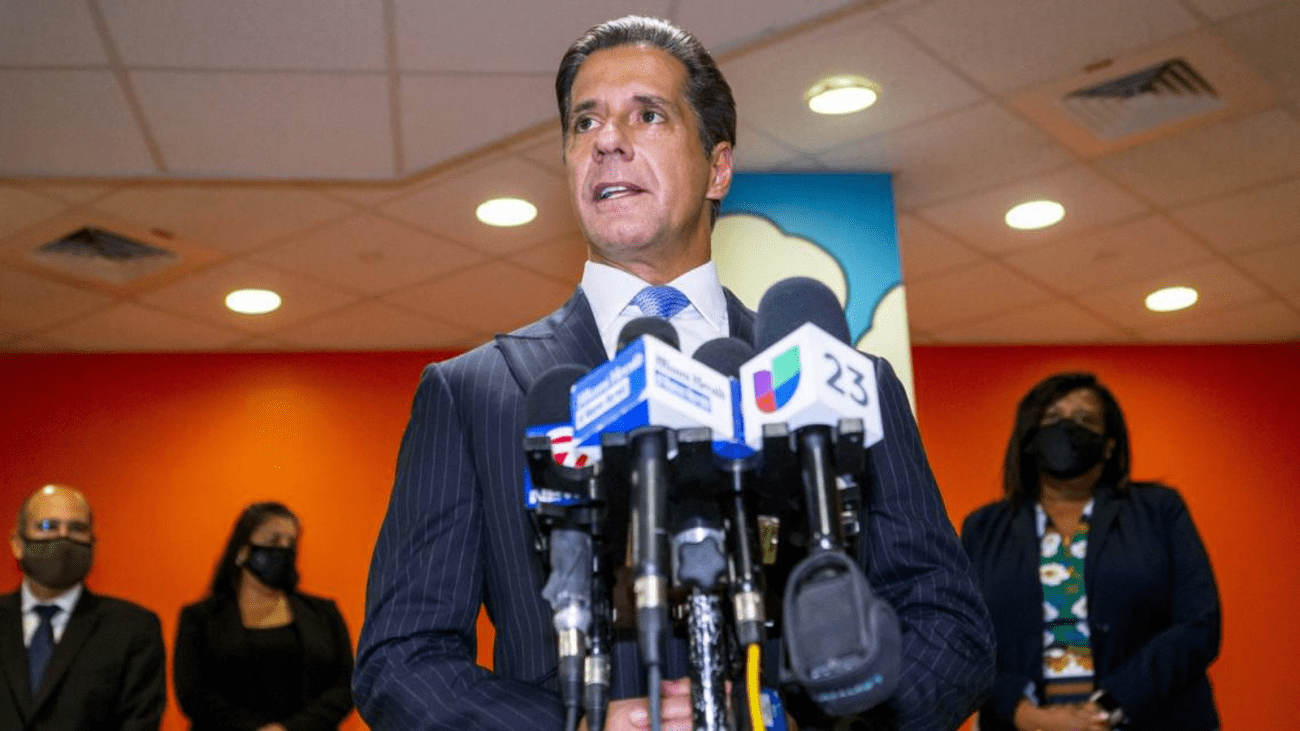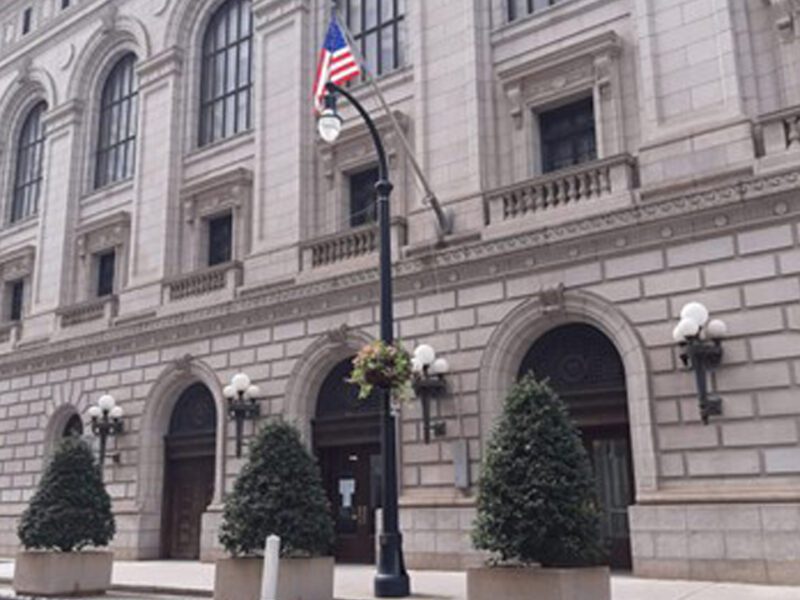
K12 money to Carvalho foundation has ‘appearance of impropriety’ | Miami Herald
Miami Herald | By Colleen Wright | June 30, 2021
An investigation into the $1.57 million donation solicited by Miami-Dade School Superintendent Alberto Carvalho from the company that created a failed online learning platform without a fully executed contract found “no actual violations.”
However, according to a report released Tuesday by the Office of the Inspector General of Miami-Dade County Public Schools, there was an appearance of impropriety. The Inspector General said the Foundation for New Education Initiatives, a district-run nonprofit founded by Carvalho when he was an assistant superintendent in 2008, should return the donation by K12 Inc. (now known as Stride, Inc.).
Carvalho promised the money to teachers in the form of $100 gift cards for their overtime struggles with the online learning platform. The Inspector General also recommended that Carvalho should recuse himself from any discussion, vote or decision by the FNEI Board regarding what to do with that donation.
In a written response, Carvalho disagreed with returning K12’s donation. That decision will be made by FNEI’s board of directors. Its next meeting is scheduled for Oct. 19.
The 82-page review that began in September concluded that there was no violation “because teachers — the intended gift recipients — are not required to file financial disclosures pursuant to the State Ethics Code” unlike public officials. It also found that “facts elicited during the review did not support any finding that solicitation was in any way tied to the future action.”
“While the solicitation may have been ill-considered, as will be discussed below, our review likewise found no wrongful intent,” the report read. “There is no doubt that this solicitation for gifts totaling over $1.5 million — on the eve of the temporary K12 LMS (learning management system) go-live and with an unsigned contract hanging over it — created an appearance of impropriety.”
In a statement, school district spokeswoman Daisy Gonzalez-Diego said the report “validates that all individual and organizational actions were legal, well intentioned and driven exclusively by what was believed to be in the best interest of students and teachers.”
“We are heartened by the report’s confirmation that there were no actual violations of state law, the State Code of Ethics or corresponding School Board policies,” she wrote. “Any conclusions or recommendations based on subjective interpretations of ‘appearance’, rather than verified facts, should be carefully weighed. Additionally, thoughtful consideration should be given to any action that could punitively impact teachers or appear dismissive of their extraordinary work during unprecedented times.”
The law firm of Gelber, Schachter & Greenberg submitted a response on behalf of Superintendent Carvalho agreeing with the facts laid out in the report. The response’s only “quarrel” with the report was the appearance of impropriety.
“The IG Should Not Find an Appearance of Impropriety When It Simultaneously Concludes that Nobody Actually Acted Improperly,” read the bolded response signed off by attorney and Miami Beach Mayor Dan Gelber.
The United Teachers of Dade president Karla Hernandez-Mats said in a statement that because no impropriety or violations were found, the donation should stand and the commitment to teachers should be kept.
“We have always remained confident that the actions taken by the Superintendent to implement a virtual learning system in the midst of what was a chaotic time were done with the welfare of our students and teachers top of mind. The leaders of Stride, Inc. (formerly K12 Inc.) overpromised and fell short of their deliverables,” she said. “Anyone would agree that $100 is hardly compensation for the time lost and the frustrations encountered, but honoring their commitment is the right thing to do.”
CHAOTIC START TO MIAMI SCHOOL YEAR IS DETAILED
The report recapped the saga of a chaotic start to an already unprecedented school year. It detailed how the nation’s fourth-largest school district had six weeks to put together a fully functioning online learning platform as a result of the COVID-19 pandemic.
The report said Mario De Barros, the chief procurement officer, estimated that the procurement process would take until late 2020 or early 2021 for K12’s learning management system to be operational.
The report revealed that the school district repeatedly requested price reductions. According to Marie Izquierdo, the district’s former chief academic officer who now serves as chief strategy officer, K12’s initial price was $40 million based on a per-student charge. Carvalho met with Nathaniel Davis, the CEO of K12, to negotiate the cost down.
“According to Superintendent Carvalho, the meeting was not very pleasant because it was clear that M-DCPS could not afford the initial pricing,” the report read.
PROBLEMS WITH K12 DELIVERING PLATFORM ON TIME, DISTRICT SAYS
K12 would promise to deliver by a certain date and time, but would continuously “(move) the goalposts,” according to Izquierdo.
Izquierdo and other administrators told the Inspector General that “they believed K12 staff were embarrassed and struggling to deliver.” She said she felt K12 dealt with M-DCPS honestly and that K12 representatives were responsive to district concerns. She noted that third-party vendors, or subcontractors, were failing K12.
The weekend before the first day of school, there was another heated meeting between district staff and K12. Izquierdo said she thought something should be done for teachers who saw their class rosters and lessons constantly disappear on the new platform. According to the report, Carvalho reached back out to Davis to discuss the idea.
The Inspector General confirmed a fully executed contract was never returned to K12.
Davis cooperated with the Inspector General, who said that Davis agreed with the donation and did not feel pressured, coerced or that the teacher recognition was in any way contingent on receipt of the fully executed contract.
Asked why K12 would make such a large donation despite not having an executed contract having already committed extensive resources to develop a custom platform, Davis said, “We believe that we are an important player, and a resource, to helping school districts accomplish their goals of educating kids. We believe in school choice, we believe in school options, and different capabilities, we believe in digital as a tool that many school districts can use. So, we put forth solutions that we may not get rewarded for. We still think it helps the overall market, and it helps the school districts understand their capabilities.”
Davis explained that K12 was building a prototype not just for Miami-Dade, but for others around the country, even at “candidly, it was a lower price.”
Though emails were sent to teachers advertising the $100 gift card as an incentive for setting up their online classes by a deadline, the Inspector General’s report said the district calculated the $1.57 million donation based off giving a $100 gift card to roughly 15,700 teachers on the master schedule. The district’s human capital officer said there was no easy way to calculate how many teachers had classroom students assigned amid the pandemic’s remote learning.
A spokeswoman for the United Teachers of Dade told the Miami Herald that certain teachers, like teachers who work with students on the autism spectrum, are not on the master schedule.
The Inspector General said it learned that FNEI already had a program in place through Publix to purchase Publix gift cards for homeless students with controls in place to ensure proper distribution.
In its report, the Inspector General made recommendations to avoid “actual and apparent conflicts.” It said the School Board should examine the issue of soliciting or receiving donations from current vendors while acknowledging the board had already done so.
DONATIONS TO CARVALHO’S FOUNDATION MUST NOT ‘RAISE THE APPEARANCE OF IMPROPRIETY,’ REPORT SAYS
It also recommended that FNEI should determine best practices and establish guidelines “to ensure that solicitations or acceptance of donations from donors with current M-DCPS contracts are truly arms-length, do not raise the appearance of impropriety, or create an actual conflict of interest with the FNEI Chairperson or Vice Chairperson.”
Carvalho has served as the foundation’s chairperson. The School Board chair usually serves as vice chairperson, but Miami-Dade Schools Board Chair Perla Tabares Hantman resigned as the foundation’s vice chair in December.
“Certainly, M-DCPS teachers deserve to be recognized for their service and their unfailing commitment to their students, their profession, and the public. They learned and navigated a new system, and entered their class rosters, sometimes repeatedly, to ensure they were ready to start the school year,” the report concluded.
“However, to preserve the public’s trust, such reward should not be obtained in a manner that creates the appearance of impropriety. The solicitation of a gift from a vendor whose contract still remained unsigned by the soliciting party, does give rise to the appearance of impropriety.”





